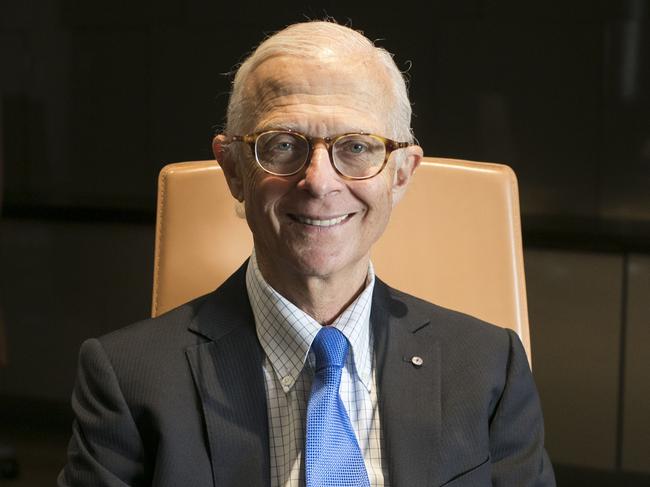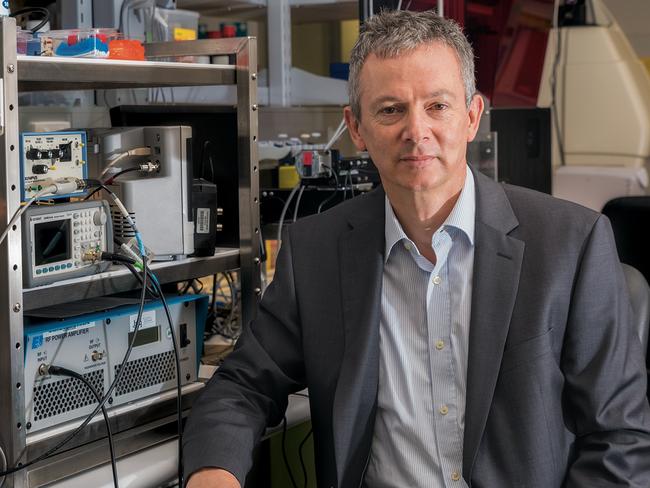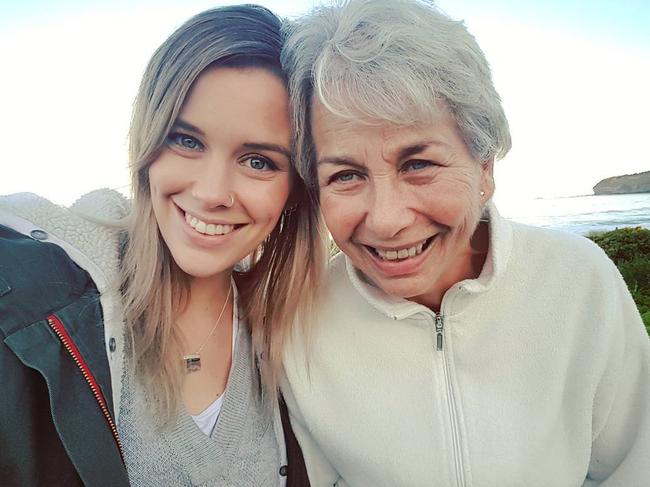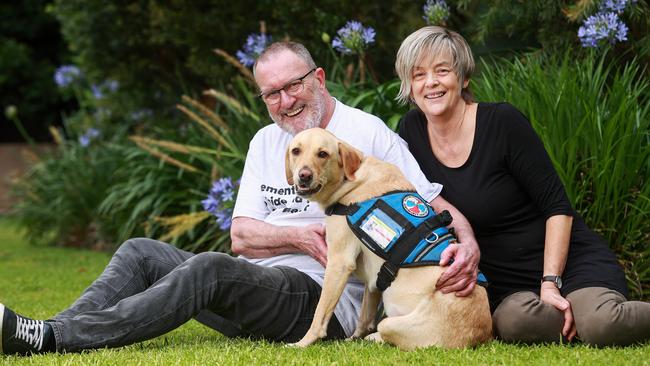New drug treatments as Australian doctors search for a cure for dementia, Alzheimer’s
Dementia is Australia’s second biggest killer and it now rivals cancer. Here, experts reveal their new treatments. SEE THE LIST.
National
Don't miss out on the headlines from National. Followed categories will be added to My News.
Dementia has become Australia’s second biggest killer and it now rivals cancer as the most feared health condition in the nation.
“If you ask people what they’re frightened of it used to be cancer, now it’s dementia,” University of NSW dementia and ageing expert Professor Henry Brodaty said.
“It’s not so much the degeneration and loss of thinking abilities. It’s the loss of control, the loss of autonomy. The worry about maintaining your dignity, being able to make choices for yourself.”
More than 472,000 Australians are living with dementia and that number will more than double to 1.1 million by 2058.
Thirty thousand of them have younger onset dementia, including people as young as 30.
And the condition has become the single largest cause of death among Australian women.
Dementia is a group of conditions that includes Alzheimer’s disease.
It strips people of their memory, language, problem-solving and other thinking abilities by damaging brain cells.
But scientists are making major breakthroughs in understanding its cause and ways of treating it.
Listen to UNSW Centre for Healthy Brain Ageing Professor Henry Brodaty below:

NEW MEDICINES
*Aducanumab
In late 2021, the US the FDA controversially approved Aducanumab, the first ever drug to reduce levels of amyloid plaque in the brain that is thought to be one of the drivers of the condition.
“We’ve moved beyond research already into what hopefully are disease modifying treatments with Alzheimer’s,” Dementia Australia’s medical adviser Professor Michael Woodward said.
The drug is being given to Australians as part of a clinical trial. It is likely to be considered by our medicines regulator this year for a subsidy. It is currently very expensive at $72,000 per year.
“Our experience in our site has been some of our patients have done extremely well, and had virtually no deterioration of their Alzheimer’s, they’ve not necessarily improved, but none of the deterioration that would otherwise be expected,” he said.
The new drug is highly controversial. It was approved in the US even though it was not recommended by a key Food and Drug Administration (FDA) advisory committee. Some US hospitals are refusing to use it.
Listen to Dementia Australia’s Professor Michael Woodward below:
*Xanamen
Xanamen, a drug made by Aussie biotech firm Actinogen Medical, targets the cortisol level in the brain.
Cortisol is a stress hormone and higher levels have been associated with an increased risk of cognitive decline.
A trial showed the drug improved short term cognition in healthy people aged over 50 but an earlier trial in people with Alzheimer’s disease failed to show any effect. Monash University’s Professor Michael Woodward, who was involved in the trial, said a new study will use a different dose of the drug to see if it is beneficial.
* Bumetanide
Laboratory tests showed the blood pressure medication bumetanide reversed signs of Alzheimer’s in mice, as well as in human brain cells in lab dishes.
People over the age of 65 who regularly took bumetanide were 35 per cent to 75 per cent less likely to be diagnosed with Alzheimer’s.
It’s already been approved by the FDA for other uses and is off patent so it’s cheap.
Prof. Woodward said more testing must be done and urged people not to ask their doctor for a prescription at this stage.
* Repurposing drugs used for other conditions
Melbourne University is testing 10 different drugs used for other conditions to see if they can help control Alzheimer’s disease.
An anti-inflammatory rheumatoid arthritis medication associated with a lower risk of Alzheimer’s is one of them.
A sugar molecule is being tested to see if it reduces inflammation and the production of amyloid proteins that clog the brains of people with Alzheimer’s disease.
Diabetes medication semaglutide is another candidate.
The team is also investigating the role of brain receptors that might cause proteins to misfold and other processes that could improve energy production, antioxidant processes, anti-inflammatory processes in the brain.
VACCINES
*Nasal spray vaccine
Researchers have developed a nasal spray vaccine against Alzheimer’s disease which is entering an early stage human clinical trial at Brigham and Women’s Hospital in the US.
The vaccine uses an immunotherapy drug Protollin which is composed of proteins from bacteria.
It stimulates the immune system prompting white blood cells to clear sticky proteins, called beta amyloid plaque, associated with Alzheimer’s disease from the brain.
* Protein-targeting vaccines
A vaccine being studied by British and German researchers uses an antibody to destroy amyloid plaques in the brain linked to Alzheimer’s disease.
When given to mice bred to have cognitive problems similar to Alzheimer’s disease, the vaccine reduced proteins called amyloid-plaque from clogging the brain and helped correct memory problems.
Researchers at the University of South Florida Health have also tested a vaccine for Alzheimer’s disease which uses the body’s own immune cells to target proteins called beta-amyloid from clogging the brain.
Mice bred to exhibit cognitive problems similar to Alzheimer’s disease who received the vaccine produced antibodies against the protein that is thought to be a factor in Alzheimer’s disease. They showed improvements in memory tests.
THERAPIES
* Gene therapy
A very small trial of gene therapy for Alzheimer’s disease slowed the progression of the disease by about 50 per cent.
Genetically modified cells were injected directly into the brain.
The cells were tweaked to produce nerve growth factor, a natural substance that helps brain cells to grow, survive and repair damage. Prof. Woodward said there is a risk if you put stem cells into the brain, they won’t make the neurons that you want and could potentially turn into cancer.
* Ultrasound
Professor Jürgen Götz from University of Queensland’s Brain Institute has shown low-intensity ultrasound could restore cognition in mice.
The use of ultrasound bypasses the need to penetrate the blood-brain barrier, providing greater accessibility and a less invasive form of brain treatment.

CAUSES
* A toxic protein might cause dementia
Professor Götz has discovered that dementia may be caused when a toxic protein, tau, leaks into healthy brain cells.
These leaks create a damaging seeding process that causes tau tangles and ultimately lead to memory loss and other impairments.
* Immune system causes dementia
Research from Cardiff University has discovered the body’s immune system may attack the brain cells of people that are genetically susceptible to Alzheimer’s.
The research has linked 30 genes with the development of Alzheimer’s disease.
* Fat deposits could be a cause of dementia
Groundbreaking new Curtin University research has discovered a likely cause of Alzheimer’s disease was the leakage from blood into the brain of fat-carrying particles transporting toxic proteins.
The theory has been tested on mice.
Dietary changes could potentially lower these toxic protein deposits, alternatively drugs could be made to target the fat particles slowing the progression of Alzheimer’s disease.
RESEARCH
* Mini brains
Husband and wife researchers from Sydney’s Macquarie University, Associate Professor Yazi Ke and Professor Lars Ittner, have created miniature brains using stem cell technology to investigate dementia.
The ‘brains’ are pink clusters of neurons about a centimetre wide.
The team is already using them to investigate neurodegenerative disorders like Alzheimer’s.
If you or your family need help with dementia you can call Dementia Australia’s helpline 1800 100 500.
‘HER SUBSTANCE WAS GOING AWAY’
TV presenter and author Stephanie ‘Hex’ Bendixsen was “heartbroken” to lose her mother to Alzheimer’s disease three years ago.
The computer games media host said at first the family thought her mother Wendy was suffering from anxiety or depression and it took some time to get a diagnosis.
Her mother, who had worked as an aged care nurse, began to lose confidence driving, had difficulty managing the housework, then started to forget important family events had taken place like a dinner to celebrate her daughter falling pregnant.
Then she developed sight and motor function problems and could not fully take part in conversations.
“She became this sort of shell of a person where she looked like her and she sounded like her, and she would say things that sounded like her but the substance was going away,” the 36 year old said.

“My dad worked so hard his whole life to enjoy his retirement with his wife and that’s just not the way his life turned out, he became a full time carer for her.”
Dementia Australia has produced resources including a virtual reality headset that allows aged care workers to be trained to see the world like someone with dementia.
The organisation has also developed an app that provides games friends and relatives can play with their loved one with dementia when they visit.
“When you’re visiting someone with dementia in the advanced stages, it’s hard to know how to pass that time because you can’t really have a conversation with them and you’re trying to make that a positive experience,” said Ms Bendixsen.
Her advice to people who have a relative with dementia is to stop correcting them when their memory fails them because it can make them angry and aggressive.
‘I WAS LEAVING ITEMS IN FUNNY PLACES’
Phil Hazell began to realise something was wrong when he was out with his mates at a pub, it was his turn to shout and he couldn’t remember the drink orders.
“They’d take the piss out of me and I got to the stage where I couldn’t remember anything except for my own drink,” he said.
“And then Jane, my wife, noticed that I was leaving items in funny places, she’d asked me a question and I’d immediately forget the question and I’d have to ask her to repeat herself.”
The father of two was aged just 55 when he received the devastating diagnosis, which he said was delivered in an “incredibly unsatisfactory” way.
“When we met the neurologist and the psychologist for the diagnosis, they just said ‘go and get your affairs in order’,” he said.
“There was no referral to Dementia Australia, there was very little information. We were just blown away by the situation, but had absolutely zero support until I actually Googled Dementia Australia.”

Within 12 months of his diagnosis Mr Hazell retired from his job as a representative for a spectacle lens manufacturer.
However, as living proof there is life after diagnosis, he reinvented himself as an advocate for Dementia Australia.
His assistance dog Sara has been key to him continuing an active role in the community, and she finds items around the house for him like keys, wallet and phone.
Mr Hazell is taking the medication Aricept to help with his condition.
He is hopeful medical research will one day find a treatment but believes it won’t happen in his lifetime.
What is more important to him is ending discrimination for people with dementia.
More Coverage
Originally published as New drug treatments as Australian doctors search for a cure for dementia, Alzheimer’s





